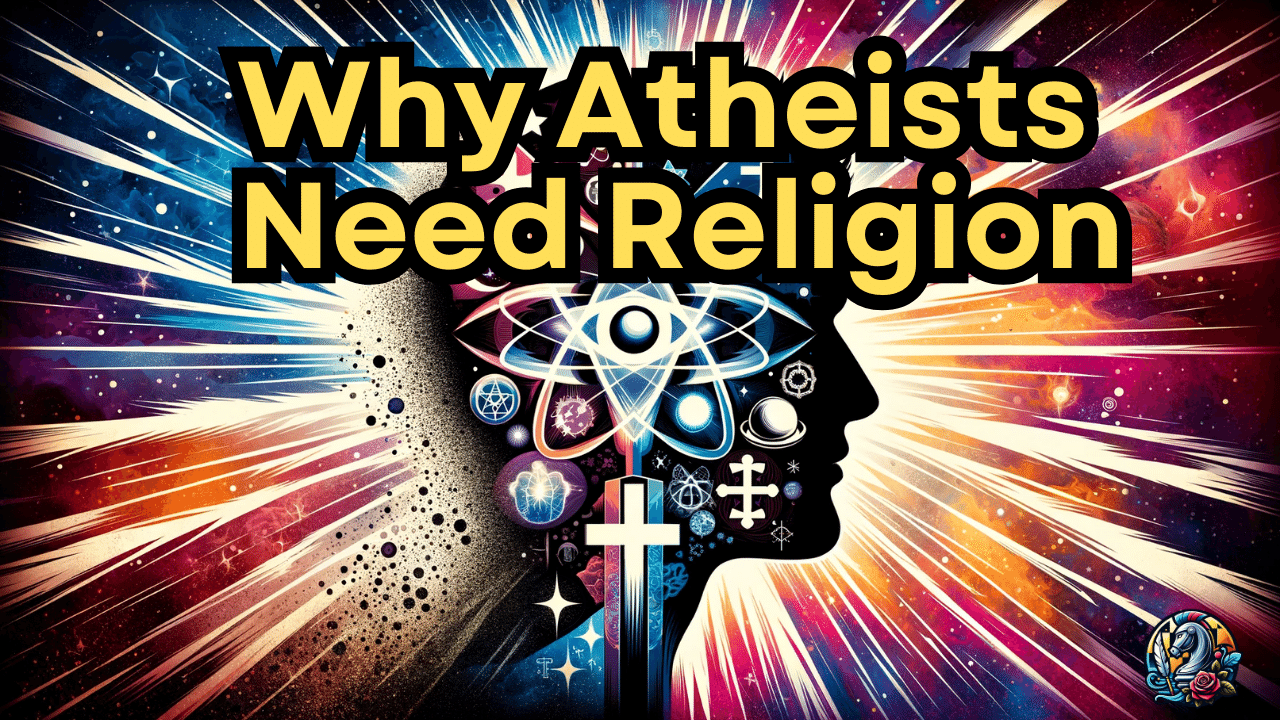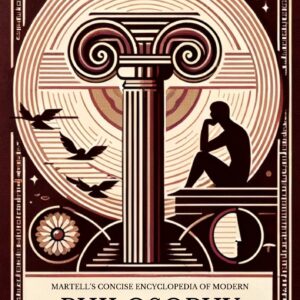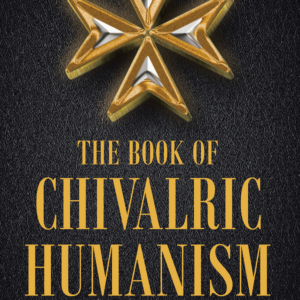The recent announcement by Ayaan Hirsi Ali, a notable figure in atheist circles, of her conversion to Christianity, ignites a vital discussion on the nature and needs of atheists. While atheism, fundamentally, is a lack of belief in deities, it often leaves a void in terms of organized community and structured moral frameworks. This essay explores the necessity for secular organized religions that can offer moral and ethical guidance, drawing inspiration from Ali’s journey and the broader quest for meaning and community among atheists.
Ayaan Hirsi Ali is not a nobody. Alongside the so-called four horsemen of atheism, Christopher Hitchens, Richard Dawkins, Sam Harris, and Daniel Dennett, Ayaan Hirsi Ali was considered by many to be the fifth horseman. She was an outspoken and passionate champion for the merits of atheism over other religions, such as Islam, which she had converted to atheism from. So why then did such a notable figure in the atheist community abandon it?
In a blog article titled, “Why I am now a Christian” published on Unherd.com on November 11th, 2023, Ayaan Hirsi Ali identified several key reasons for why she decided to convert to Christianity from atheism.
The first and I think main reason that Ayaan gives for her conversion is her criticism of the Atheist community’s Nihilistic qualities. Ali criticizes popular atheism for not adequately filling the so-called ‘God hole’ that is created in a person’s life when they become an atheist. This “hole” is the missing spiritualness that religions like Islam and Christianity provide, that is both a combination of purpose, such as a clearly defined meaning for a person’s life, as well as the community aspects such as weekly church services and other kinds of social structure. Ayaan points out that popular atheist leaders suggest that this vacuum be filled by what she refers to as, “irrational quasi-religious dogma.” While Ayaan is not specific in what she is referring to here, as someone familiar with popular atheism, especially those forms which are championed on many popular atheist YouTube channels and in internet based communities such as r/atheism on reddit, I believe I know what she is referring to here. If you spend any time watching these atheist produced videos or reading the social media posts in online atheist communities, you will quickly discover that the vast majority of this content is angry, often deeply hateful rants about superstitious religious people, almost always those that are Christians. This is often mixed in with political commentary, especially in the content created by American atheists, who view Christianity as synonymous with the American Republican Party. It is much rarer for atheists to engage in any deep introspective discussions about morality, ethics or even politics for that matter.
The vast majority of atheist content is a regurgitation of what are commonly called Wokeist political ideologies; that is to say, post-modernist viewpoints. Notable examples of this Wokeism common in online atheism are the identity politics of Critical race theory, third and fourth wave feminism and Libertarian anarchism. Part of the reason I think these are popular among atheists is because they are part of intersectionality, which is an anti-intellectual analytical framework developed by Kimberlé Crenshaw, whose writings have become undeservedly popular in the past decade. And the reason I say intersectionality is anti-intellectual is because, if you actually spend the time to read the work of Crenshaw and others who developed the framework, you will find it rejects the employment of reason and logic, which also means it rejects the employment of the scientific method and empirical methods for investigating truth in favor of constructed narratives and personal story-telling. This is because intersectionality developed out of Crenshaw’s desire to combine critical race studies with feminism and other post-modernist political ideologies she viewed as compatible with her work, and critical race is based on the Marxist Critical theory developed by the Frankfurt School in the 1930s. Critical theory is a combination of several Marxist ideas, such as opposition to capitalism, but most centrally Critical theory is defined by its Antipositivism position, which says that society cannot be analyzed by using the scientific method as used to investigate phenomena in the natural sciences. While that is a sentiment I can agree partly with, where Critical theory differs is by suggesting logic cannot be used to study human society. Critical theorists rely heavily on narrative construction to prove their claims and these narratives frequently re-define the meaning of existing words to aid the critical theorist in winning an ideological debate. The problem with this, obviously, is that the motivation for redefining words is to help them win ideological debates by changing the meaning of existing words to better suit their arguments while retaining the inherent negative or positive impressions these words hold. A notable example of this word redefining that occurs in Critical race theory is redefining racism into something which only “white people” can do to other ethnic groups through claiming that racism requires someone to have power and because only “whites” have power that means only “whites” can be racist. So when I say that intersectionality is anti-intellectual, I am not being hyperbolic but literal; anti-intellectualism is the rejection of logic, and the very idea that facts and evidence matter. They reject the mainstream scientific consensus in favor of story-telling that helps them win an argument they are having with someone, and they are not at all interested in whether the conclusions they make are genuinely true, and are only interested in so-called “personal truth”; that is, whether they emotionally feel their conclusions are true. Intersectionality is, in short, systemized confirmation bias and it allows the writer to strengthen their pre-existing beliefs by wrapping it in academic sounding language. However it is often nonsensical, because by denying the use of logic it undermines the integrity of their claims. Language has logical structure to it, so if you don’t use logic to construct your arguments you end up with inconsistent and contradictory statements in your claims. This is why what is produced using intersectionality as an analytical method is almost always nonsense yet is somehow persuasive to those who are not well educated in the epistemology of genuine intellectual philosophy.
Now that I have explained in detail what Ayaan Hirsi Ali was referring to when she said atheists try to fill the “God-hole” with “irrational quasi-religious dogma”, it is easier now to understand the rest of her essay. Now let’s talk about the second major reason Ayaan gives for converting to Christianity. Ayaan states that she is concerned about global threats, including authoritarianism, Islamism, and the negative impacts of Woke ideologies. She suggests that these challenges require a unifying force, which she finds in the Judeo-Christian tradition. While I disagree with her claim that Christianity itself is responsible for the classical liberalism that is commonly championed by Christians today, I think it is a true statement that many Christians, especially in America, do champion these values and by virtue of the intertwining of the Republican party and evangelical Christianity over the past forty years, it is primarily Christians who are advocating for classical liberal values in our present zeitgeist. So I can understand how she can view becoming Christian as a means of assisting with combating Wokeism. I do not, however, agree that converting to Christianity is the best means of combating Wokeism or that it is even the best way to champion classical liberalism. I believe it would be better for atheists to instead develop secular organized religions which champion these values.
This should be obvious but is worth remembering that Atheism is not a belief system but a position of non-belief in the supernatural. However, this lack of belief does not inherently provide a structured moral or ethical framework, nor does it foster a sense of community. To address this, at present there are only a handful of organized religious movements that atheists can join but the two most popular ones are what I would consider parody religions.
The first and most popular is LeVayan Satanism. Satanism was expressly developed as a parody reaction to Christianity, taking on myths and legends that Christians had created about what imaginary Satanists did and making a real religion out of it. But Satanism is not a genuine atheist belief system, as it does have magical thinking about life energies and spell-casting in it. While the figure of Satan is often claimed to be not a specific deity but instead a concept of rebellion and individualism, that doesn’t make Satanism any less metaphysical. Satanism is also a form of hedonistic egoism and its origins as a reaction to Christianity tends to appeal to people that enjoy conflict and drama, which is often expressed by Satanists intentionally presenting themselves as social outcasts by adapting ‘Satanic’ appearances inspired by villains from popular horror movies. I would regard Satanism as a kind of protest parody religion more than a serious intellectual moral framework designed to actually provide purpose for life, as all of its core themes and ideas were designed to be anti-Christian. Creating a religion solely to protest your dislike of another religion is not a very sensible way to develop a more coherent belief system.
So Satanism’s metaphysical beliefs and tendencies towards hedonism and promotion of conflict with Christians does not address the deeper human needs for ethical guidance and positive social interactions, instead it promotes isolationism and combativeness. Similarly, movements like Pastafarianism, while critical of religious dogmatism, often focus more on satire than on building constructive moral frameworks. Pastafarianism is yet another reactionary religion created to protest Christianity and has been popularized not because it provides real value but instead because it has been useful for first amendment activists to win lawsuits.
The third most popular religion is secular humanism, which is more like political philosophy than an actual religion in my opinion. There is no genuine movement for a secular humanism religion, and groups like the American Humanists Association are really just a lobby group for the separation of church and state. While it has a celebrant program that allows its affiliates to act as wedding officiants, because the brand of humanism endorsed by American Humanists Association is more political than it is religion there is no specific identifiable form of humanism they endorse or teach. My conclusion from reading the writings made by prominent members of this lobbyist group is that they tend to endorse hedonistic egoism similarly to the Satanists, and endorse the same Wokeist ideologies that are representative of the larger atheist community.
In the absence of traditional or secular organized communities, I believe that Consumerism has increasingly filled the void, becoming a pseudo-religion for many. Brand loyalty and consumer habits often mimic religious practices, offering a sense of identity and belonging. We need only look at the habit of so many people tattooing the intellectual property of multimillion dollar corporations onto their bodies to see these pseudo-religious behaviors, as tattoos were once reserved for displaying religious and tribal affiliation. However, this shift to consumerism as a cultural anchor is shallow and fails to provide the deeper ethical guidance and community connection that organized religions or secular moral frameworks can offer. The purpose of one’s life cannot be to collect Harry Potter merchandise and play videogames.
I mean really think about this. The same number of people that used to be members of fraternal organizations like the Freemasons in the past now play online games with the time that would have been spent being involved with a local club like that. Clubs that united people around shared moral values and community service, and which made enormous positive contributions to society. But Consumerism has replaced much of that for people of this current generation. Most people today, not just atheists but people in general, are more of a brand loyalist and their lives revolve around something in their fandom whether it’s World of Warcraft or Harry Potter or Marvel comic book movies or whatever. They have replaced religion with the pursuit of meaningless recreational activities that generate wealth for an elite few who contribute very little back to society, as the elite few in turn spend the bulk of their money on mansions, fancy cars and other luxury products.
If atheism is to become something that is normalized it has to be more than just political advocacy for religious freedom. While that certainly is an important principle for an atheist and first amendment lobby groups are needed, religious freedom is not an exclusively atheist idea and it was actually invented by religious people. It’s a political idea. There must be equal, perhaps even greater focus on individual ethical behavior and codes of moral framework for atheists if atheism is something that’s going to become normalized in society. And it has to be organized into communities so that people will actually stick with it
So going back to Ayaan Hirsi Ali’s criticism of the popular atheist community, we can see that her criticism that there is little it can offer if you don’t enjoy dressing up in silly costumes and don’t support hedonism and egoism. If you, like Ayaan Hirsi Ali, are concerned that the totalitarian tendencies of Wokeist ideologies are a threat to the future stability of the civilized world, you won’t find many allies in the popular atheist community. While there are some emerging groups like Atheists for Liberty that have formed as a reaction to the endorsement of totalitarian Wokeism by mainstream atheists groups like American Atheists and American Humanists Association, they are at present significantly smaller pockets of the wider atheist community and they still are not an effort to develop anything resembling organized secular religion.
Humans are inherently social beings, seeking community and a sense of belonging. Organized religions have historically met these needs, providing not only a community but also a structured approach to morality and life’s big questions. The absence of such structure in atheism can leave individuals adrift, seeking solace in traditional religions that offer clear moral directives and a built-in community. This underscores the necessity for organized secular alternatives that can fulfill these human needs without resorting to supernatural beliefs. Most people need a community where they can actually meet other people in the real world and not just on the internet. They need a structured moral framework that has at least guiding principles that they can follow and use to inform decision making. They need to have a purpose for their life that gives it meaning. Most people simply are not going to be content to live an introverted life developing their own moral framework, which is why even intelligent people rationalize adopting superstitious religions even when they know the supernatural explanations are irrational. They aren’t adopting superstition because it is rational, they are adopting it because they don’t have the rare intellectual predispositions necessary to create an alternative secular religion.
I wrestled with these very questions Ayaan Hirsi Ali did when I created my own form of secular humanism which I made virtue based, Chivalric Humanism. I recently completed the first draft of a new book that utilizes its ethical framework for a political theory, as I rooted Chivalric Humanism in Enlightenment philosophy, which is what modern republics are also based in. So it lends itself very well to a defense of the so-called Western values she mentions in her article, without having to become superstitious. My intention has been to use these writings as the basis for creating organization of secular religion for atheists and agnostics, as no one else seems to be doing that in a way that isn’t reactionary protest of religion. I think the development of secular organized religion is a necessary step for atheism to become normalized. There’s a lot of people who are non-religious but that doesn’t necessarily make them atheist if they still believe in things like horoscopes and tarot cards and other kinds of superstitious things, or if they replace morality with Consumerism and Wokeist anti-intellectualism.
Chivalric Humanism is a virtue-based secular framework which I created expressly to fill the vacuum that Ayaan Hirsi Ali described in her essay. It offers a coherent set of ethical guidelines while eschewing superstition. It ties moral conduct to human dignity and rational thought, drawing from the rich tradition of Enlightenment thinking that underpins modern democratic values and is directly responsible for the classical liberalism that Ayaan Hirsi Ali favors. This framework can provide atheists and agnostics with a structured moral compass and a sense of purpose in life, aligning with the universal values of freedom, rationality, and individual dignity. But while I am biased toward my brand of secular religion, I admit that other forms could be created that might be equally useful replacements for superstitious religions. I just don’t know of any that do, because organized secular religion for atheists is not yet a movement and is still just a concept.
Nevertheless, the development of organized secular religions is pivotal for addressing the gaps left by atheism and consumerist culture. These communities should be centered around shared ethical principles, drawn from secular philosophies and humanist ideals. They should offer not only a set of moral guidelines but also opportunities for communal activities, support systems, and a sense of belonging. The implementation of such communities would involve careful planning, ensuring inclusivity, democratic governance, and a commitment to rational discourse and ethical conduct.
I view Ayaan Hirsi Ali’s transition from atheism to Christianity as a reminder of the human yearning for structured belief systems and community. While her journey led her to find these in a traditional superstitious religion, there exists a significant opportunity and need to develop secular alternatives. These organized secular religions can offer ethical guidance, community, and a sense of purpose, catering to the needs of atheists and agnostics in a rational, non-superstitious framework. The call to action is clear: to build and nurture secular communities that provide the same sense of belonging, purpose, and ethical structure that traditional religions offer, but grounded in the principles of reason, humanism, and enlightenment philosophy. I believe Chivalric Humanism can fill this vacuum and I encourage atheists and agnostics to learn about it.



